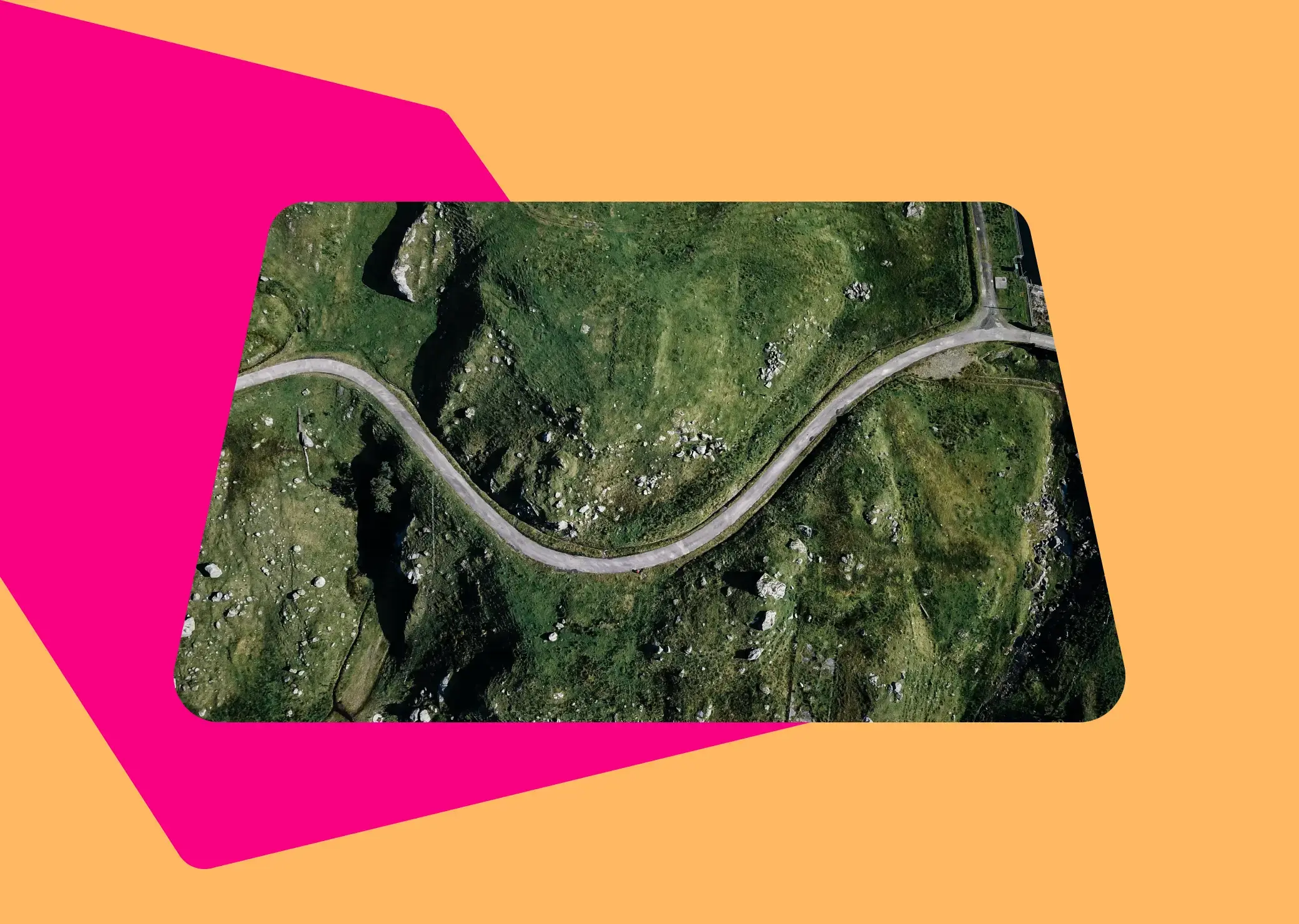- Carmoola
- Blog
- Car Finance
- Should I get car finance or a bank loan?
- 🗞 Car Finance
- Last updated: Feb 11, 2022
- 10 Min Read
Should I get car finance or a bank loan?
Written by

Verified by


See how much you can borrow in 60 seconds
| Representative Example | |
|---|---|
| Loan amount | £10,000 |
| Interest rate | 13.9% APR |
| 54 payments of | £246 |
| Total cost of credit | £3,284 |
| Option to purchase fee | £1 |
| Total payable | £13,285 |
You’ve scoured the dealerships, done the test drive, and found your dream new set of wheels. Exciting times! But before you can hit the open road and feel the wind in your hair, there’s the small matter of actually paying for the car. If you don’t have a lump sum ready to pay in full (so that’s most of us, then), there are a few options that could help. Let’s take a look at two of the most popular ways to pay for your new ride - car finance and bank loans.
Should I get car finance or a bank loan?
Car finance and bank loans are popular options because they let you split the cost of your car over time, rather than having to pay for it in full upfront. They do work differently though, so how do you decide between car finance vs bank loan? So glad you asked!
What is car finance?
Just to be confusing, ‘car finance’ doesn’t just mean one thing. It’s a phrase that covers a few different ways of borrowing money to buy a car. You’d usually be offered these if you’re buying from a car dealership.
The different types of car finance all work a bit differently, so here’s what you need to know in a nutshell:
- Hire purchase (HP) - you pay a deposit, then make monthly repayments for an agreed period of time, known as a term, to cover the cost of the car. Once you’ve made your final payment at the end of the term and paid a small ‘option to purchase’ fee, you own the car.
- Personal contract purchase (PCP) - you pay a deposit, then make monthly repayments for an agreed term. Your repayments don’t cover the full cost of the car, because they cover the car’s depreciation, plus interest, so at the end of the term you can choose to give the car back, swap it for another one, or make a lump sum payment (called a ‘balloon payment’) to own the car.
- Car leasing - you pay a deposit, and make monthly payments to use the car for an agreed length of time. At the end of the term, you give the car back to the leasing company - there isn’t usually an option to own the car.
Feel like leasing might be the way to go? Before you decide, weigh it up against hire purchase, and see how it compares with personal contract purchase.
What are the benefits of car finance?
It’s flexible
With so many different options, you can choose the deal that suits you best. If your circumstances change you also have the legal right to terminate your agreement (a process called voluntary termination) before the end date stated on your contract if certain criteria are met. You must return the car to the lender and have paid (or be prepared to pay) at least 50% of the total amount payable on your loan to exercise your right to terminate the agreement.
You could get a better car
Buying with car finance could mean you could get a more expensive car than you’d otherwise be able to afford, if you were paying the full price upfront
It can help your credit score
Making all the repayments on time can give your credit score a boost. Plus, it’s possible to get a car finance deal even if your credit score isn’t great (although it’ll cost more than if you had a good credit score)
What are the downsides of car finance?
It can be expensive
The interest is usually higher on car finance deals, so when you look at the total cost over the whole term, it can be more expensive to get car finance vs a personal loan, even if the monthly repayments are lower. The interest rate you get depends on your credit score, and if your score is a bit low, you probably won’t be able to get the cheapest deals
You don’t own the car
You won’t be the legal owner of the car until you get to the end of the term and you’ve made all the repayments
It can be restrictive
Car finance providers often have restrictions on which cars you can buy, and where you can buy them from. Plus, some PCP and leasing contracts limit how many miles you can drive each year, and say you have to keep the car in good condition. You might have to pay a fee if there’s any damage to the car when you return it
Leaning towards car finance? Check out what you need to know about how to choose between hire purchase and personal contract purchase.
What is a bank loan?
A bank loan is a personal loan that you use to pay for a car. You borrow money from a bank or other lender, and use this money to pay for the car in full. Then, you make regular repayments over an agreed length of time to pay the money back to the lender, with interest.
If you use a loan to buy a car, you’ll be the legal owner of the car straight away.
What are the benefits of a bank loan?
It can be cheaper overall
If you have a decent credit score, you should be able to get loan deals with lower rates of interest, meaning you’ll pay back less overall. Plus, you won’t have to pay a deposit upfront
The car is yours
When you use a loan to buy a car, you become the legal owner straight away. That means you can make whatever upgrades you like, or even sell it on if you feel like it
You can choose what to buy
You can use the money to buy any car from any seller, rather than having to get one from a particular dealership
What are the downsides of a bank loan?
Your credit score counts
You’ll only be able to get the cheapest interest rates if your credit score is already in great shape. If you haven’t built up much of a credit history yet, or if your credit score is low, you probably won’t be able to get the best loan deals
It can cost more each month
Although personal loans can cost less overall because the interest rates tend to be lower compared to car finance deals, the amount you repay each month can be higher
You have to keep the car
You can’t hand the car back mid-way through the term if your circumstances change, or swap it for a new one at the end of the term
Which is the right option for me?
Deciding how to fund your new ride is a big deal, and you want to be sure that you’re doing the right thing. It’s not something to just jump into - put the brakes on for a moment and think about these things to help you decide:
Your credit score
If you’ve got a healthy credit score, you’ve got more chance of being offered cheaper interest rates on a car loan. If your score is lower than you’d like, you could still get a decent car finance deal, and this could actually help you to improve your credit score, as long as you make all the repayments on time
How much you can afford
It may sound boring, but it’s important to figure out how much you can actually afford to pay each month. Car finance deals tend to involve lower monthly payments compared to loans
The car you want
If you take out a car loan, you can use the money to buy any car from any seller, whereas a car finance deal will likely restrict what you can buy and where from
Whether you want to own the car
With car finance deals, you don’t legally own the car until the end of the contract, when you’ve made all your repayments. If you pay for your car with a loan, it’s yours from day one.
How far you plan to drive
Many car finance deals - particularly PCP and leasing - have restrictions on how many miles you can drive each year, and you’ll have to pay a fee if you go over the agreed mileage limit. This doesn’t apply to car loans.
FAQs about car finance vs bank loans
Is car finance easier to get than a loan?
Generally speaking, the criteria for a personal loan tend to be stricter than for car finance, because unlike a loan, car finance is secured against the car. The lender is taking on less of a risk, because if you don’t make the repayments, they can repossess the car.
This means that if you have a low credit score, or if you haven’t built up much of a credit history yet, you may find it easier to get a car finance deal compared to a personal loan.
Does financing a car build credit?
Does a car loan get paid into your bank account?
What is a good credit score?
The three main credit rating agencies in the UK are Equifax, Experian and TransUnion, and they all have different credit score ranges. Generally speaking, the higher the number, the better the credit score.
Your credit score can be influenced by several things, including the amount of credit you have access to, how much of that credit you’re using, your payment history, and how long you’ve been using credit for.
If you don’t have any credit history, it can take around six months from the time you take out a loan or credit card to start building your score. From that point, you’ll need to manage your credit responsibly, making all your repayments on time, to boost your score. Building up a high credit score can take a few years, so it’s a long game, but it’s worth it because a good credit score will mean you can get better deals on loans and borrowing - which will come in handy when you’re ready to upgrade your wheels!
See how much you can borrow in 60 seconds
| Representative Example | |
|---|---|
| Loan amount | £10,000 |
| Interest rate | 13.9% APR |
| 54 payments of | £246 |
| Total cost of credit | £3,284 |
| Option to purchase fee | £1 |
| Total payable | £13,285 |
Related articles
PCP vs HP car finance: what's the difference and which is better?
When you're choosing between a PCP or HP car finance, the decision often depends on whether you prefer lower monthly payments or...
How to refinance your PCP balloon payment
Choosing to refinance a balloon payment on your PCP finance agreement replaces that intimidating lump sum with monthly payments....
What to do if your car on finance is broken beyond repair
Your car’s dead, the repair bill’s sky-high, or insurance has called it a write-off. But the finance payments? Still ticking...

.webp?width=832&height=592&name=customer-support%20(1).webp)












.webp?width=400&height=285&name=online-shoppers-with-dog%20(1).webp)


.jpg?width=500&height=356&name=Vintage%20car%20going%20to%20an%20old%20town-1%20(1).jpg)





